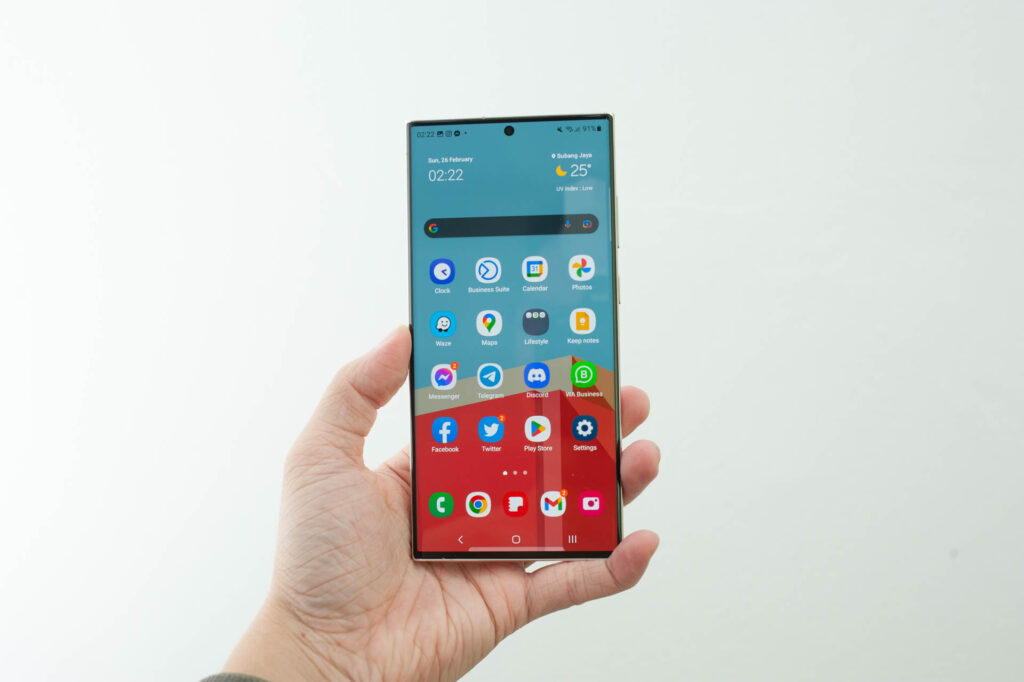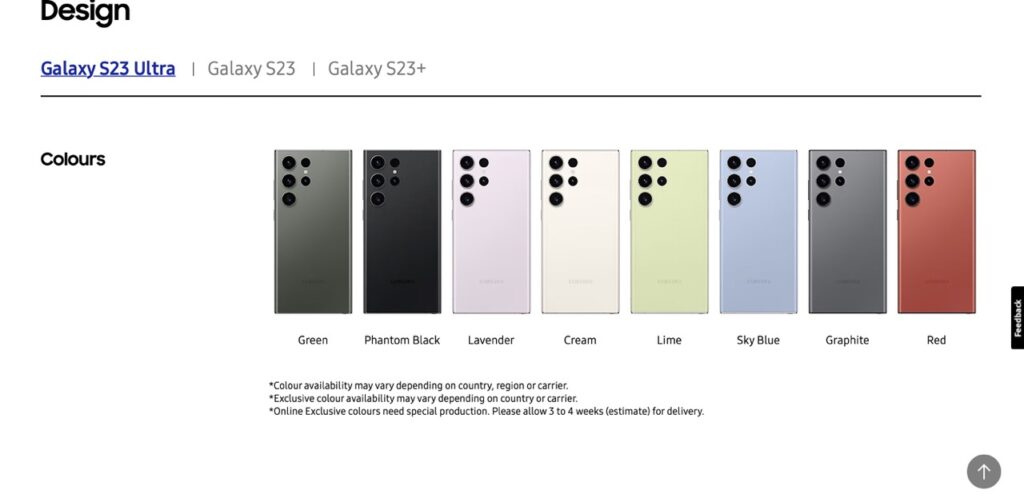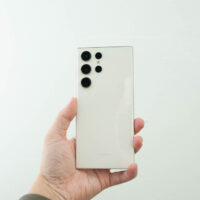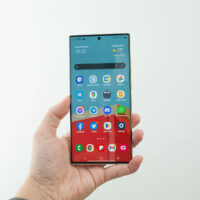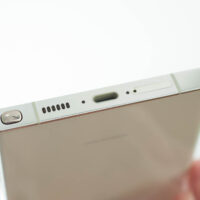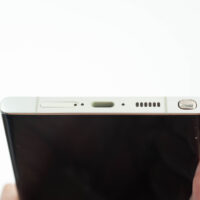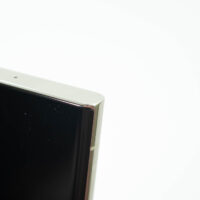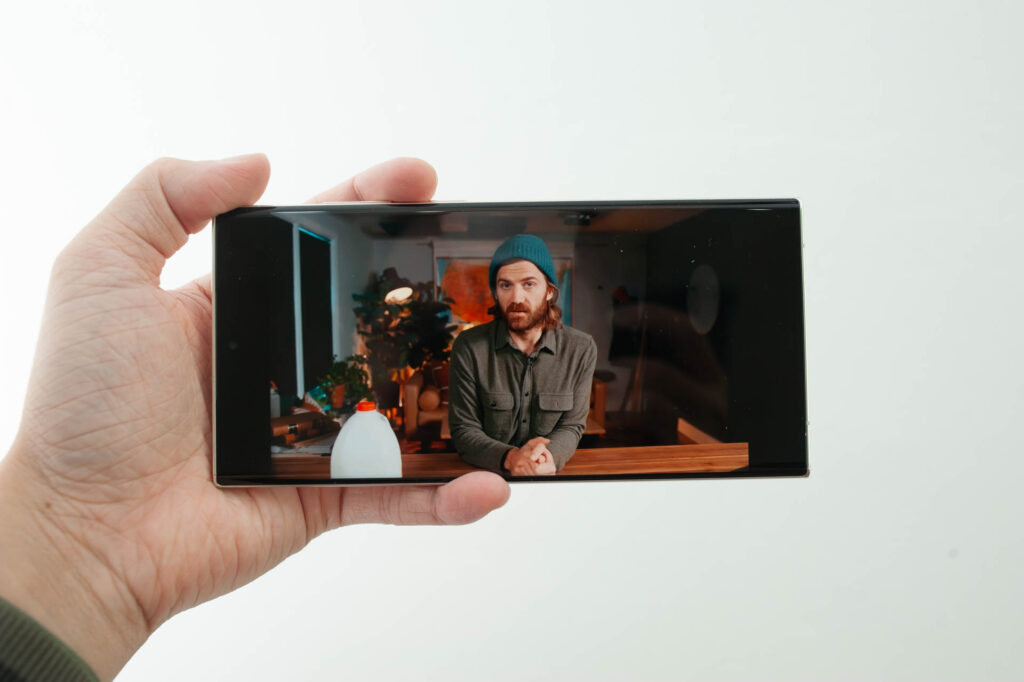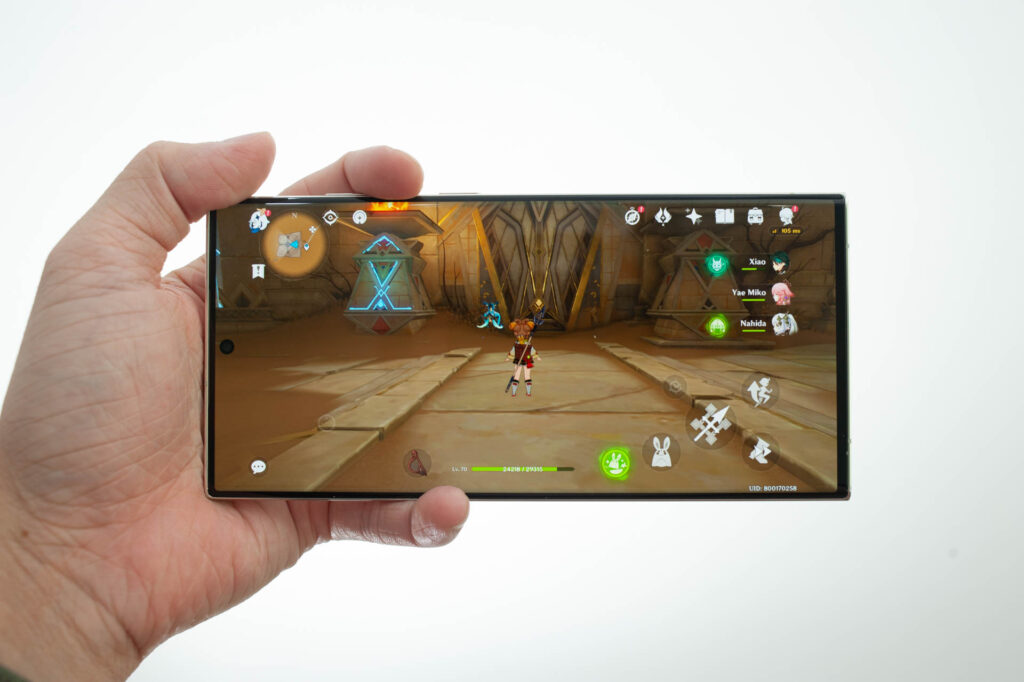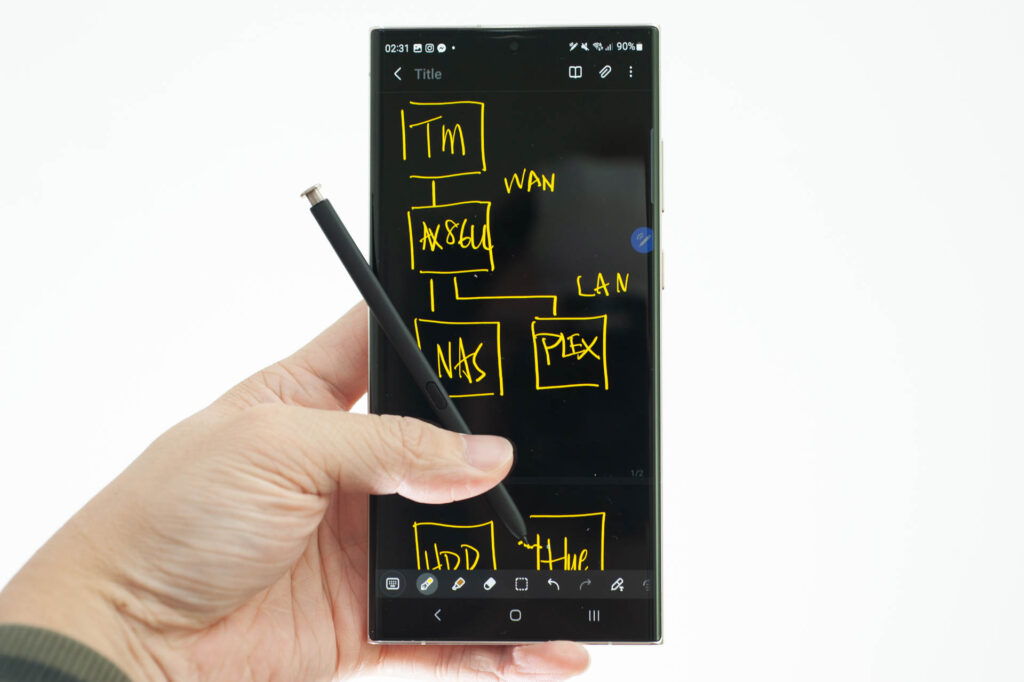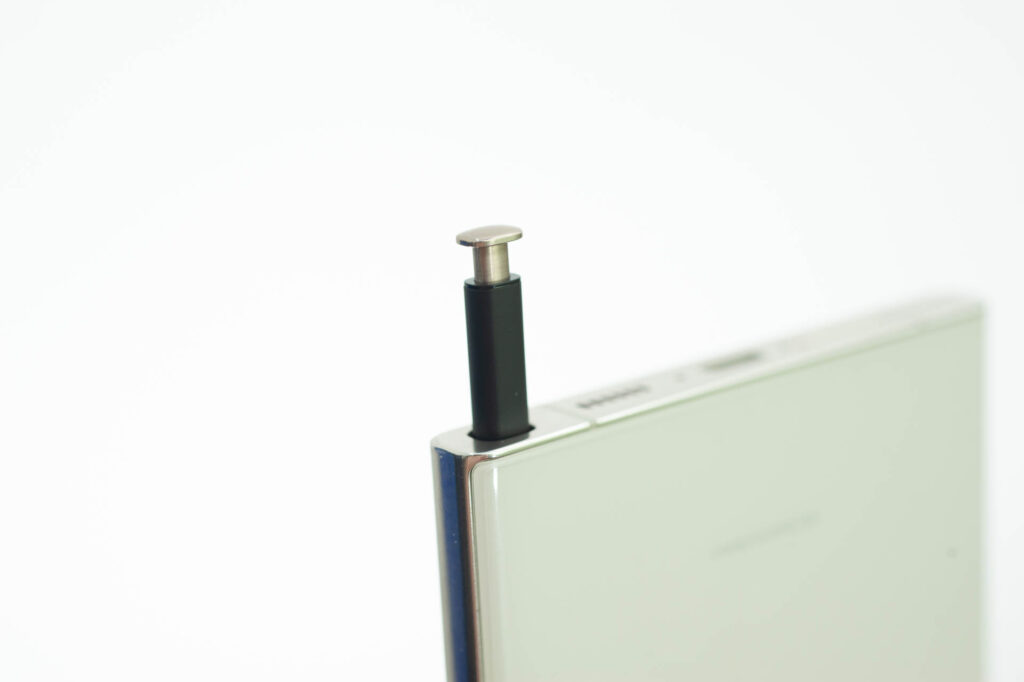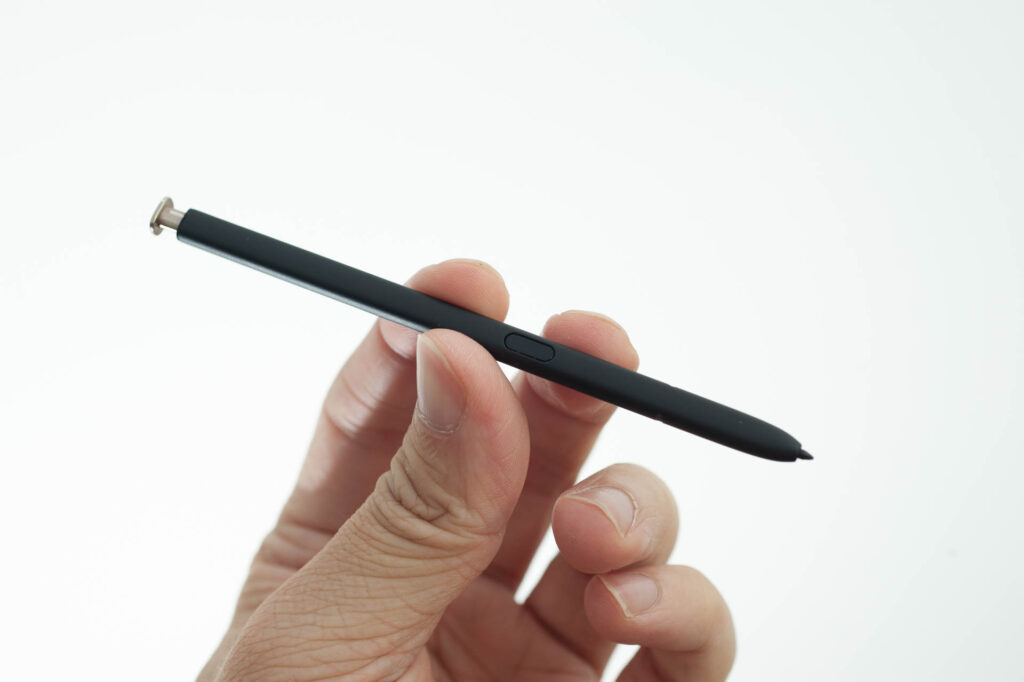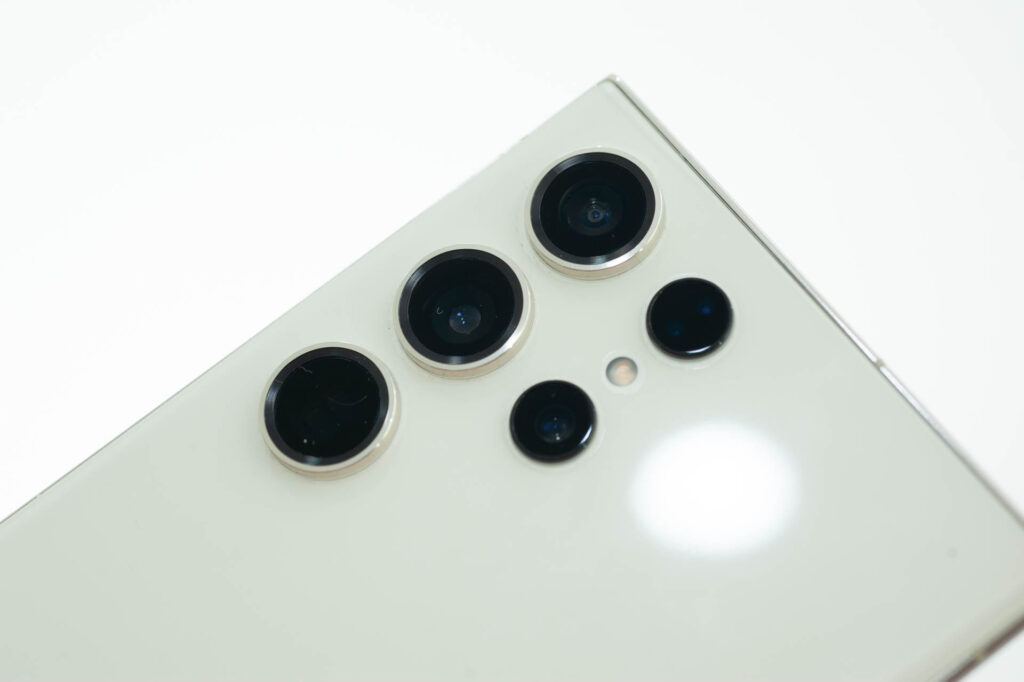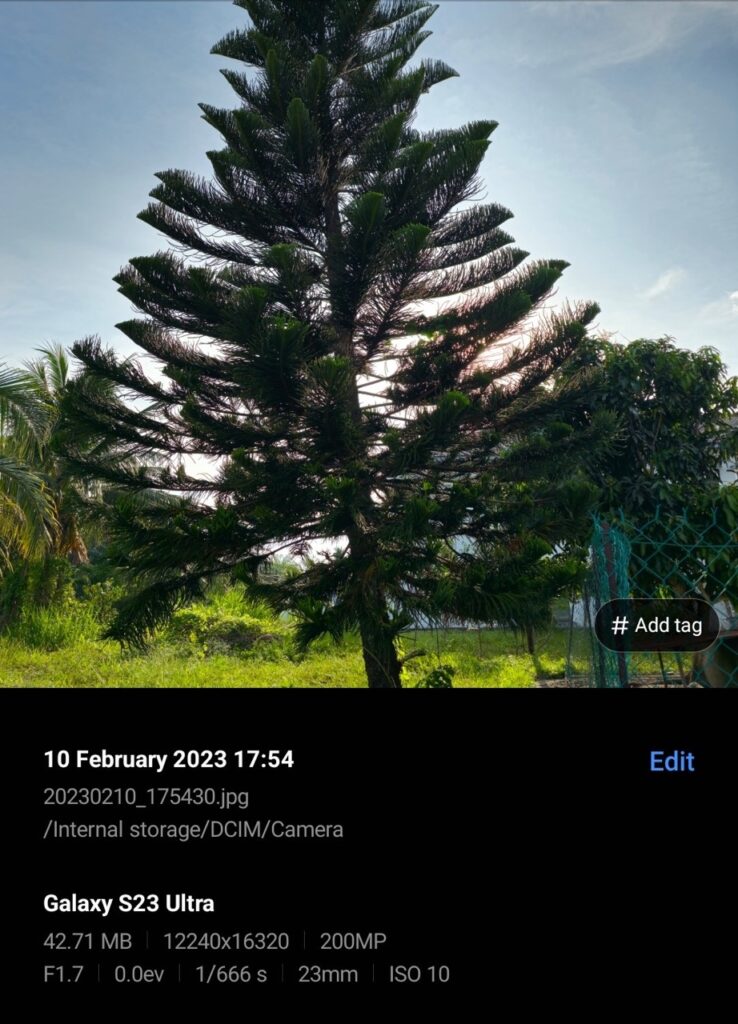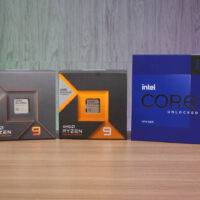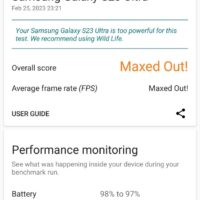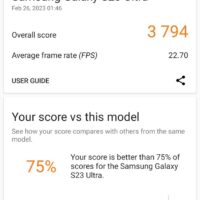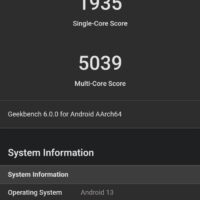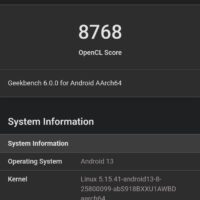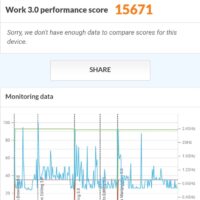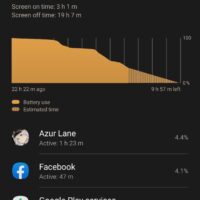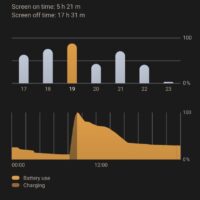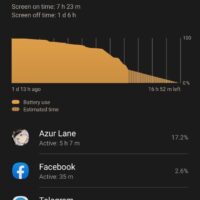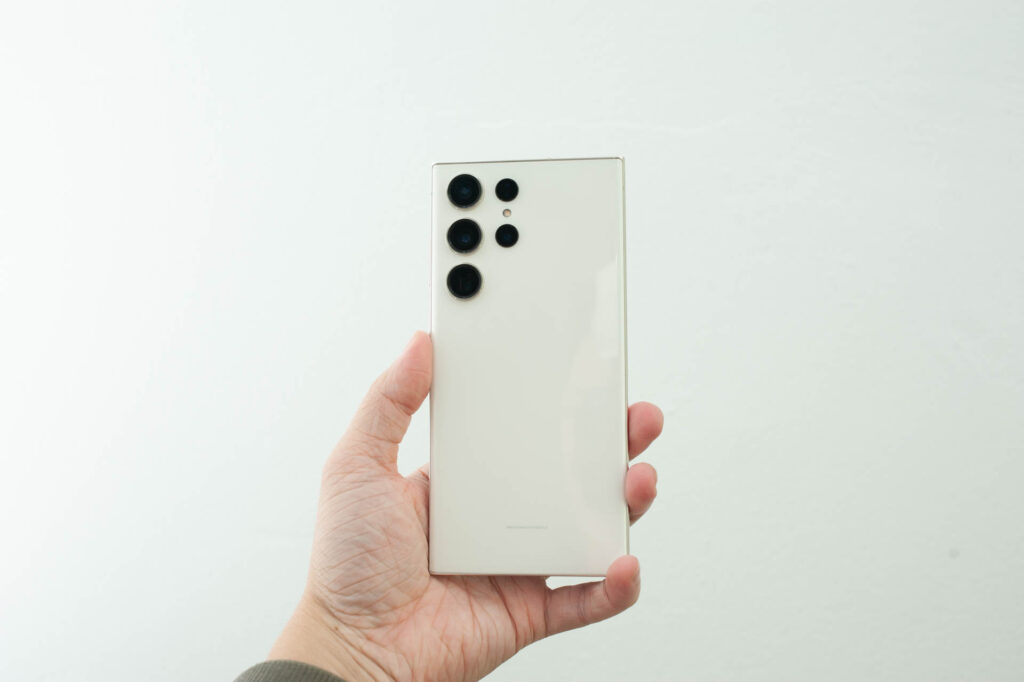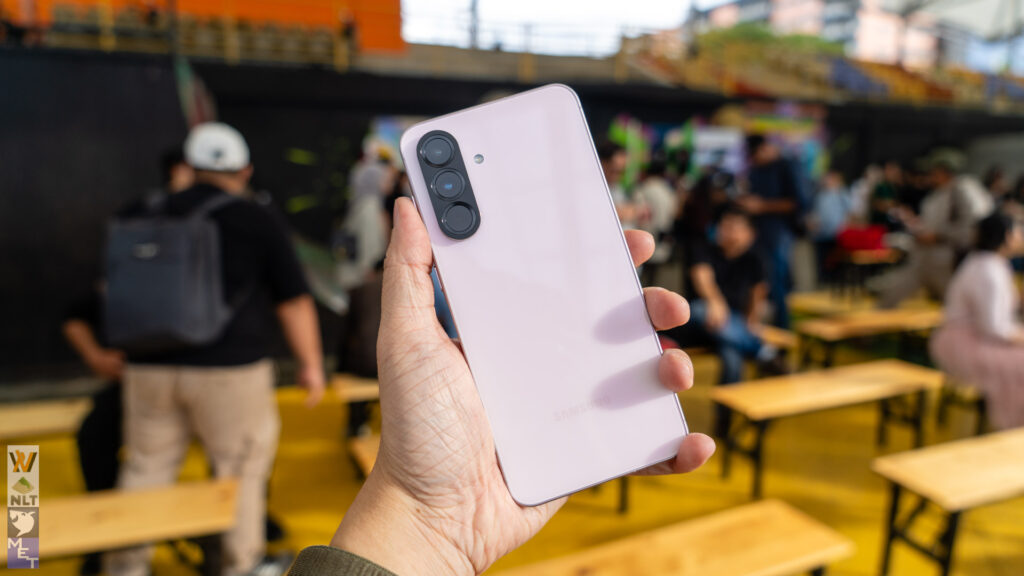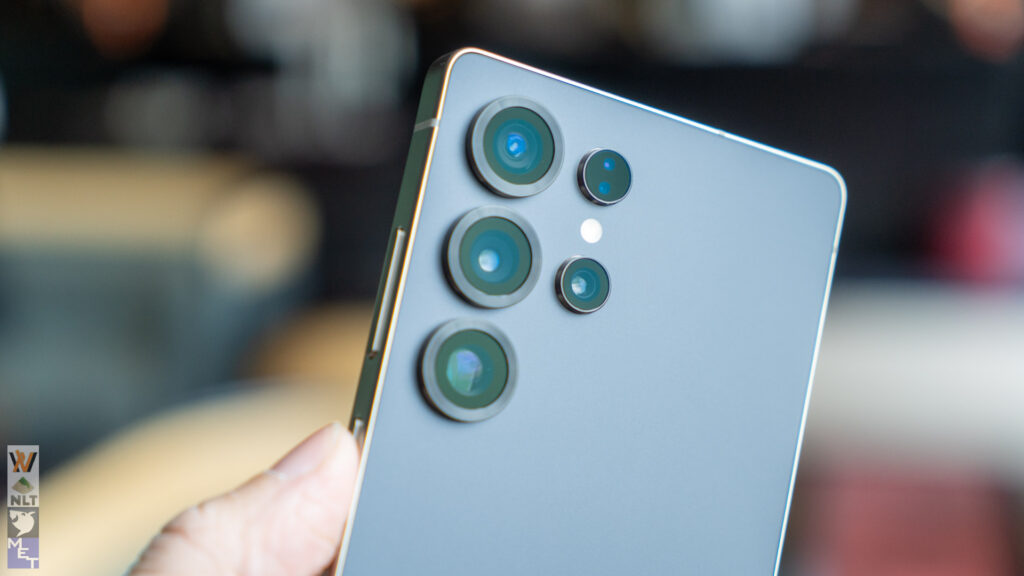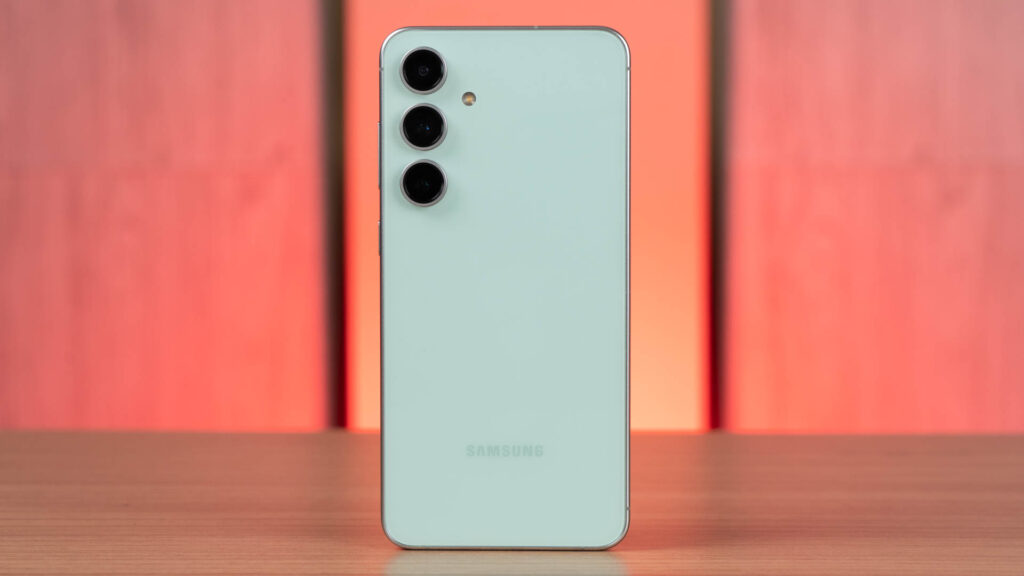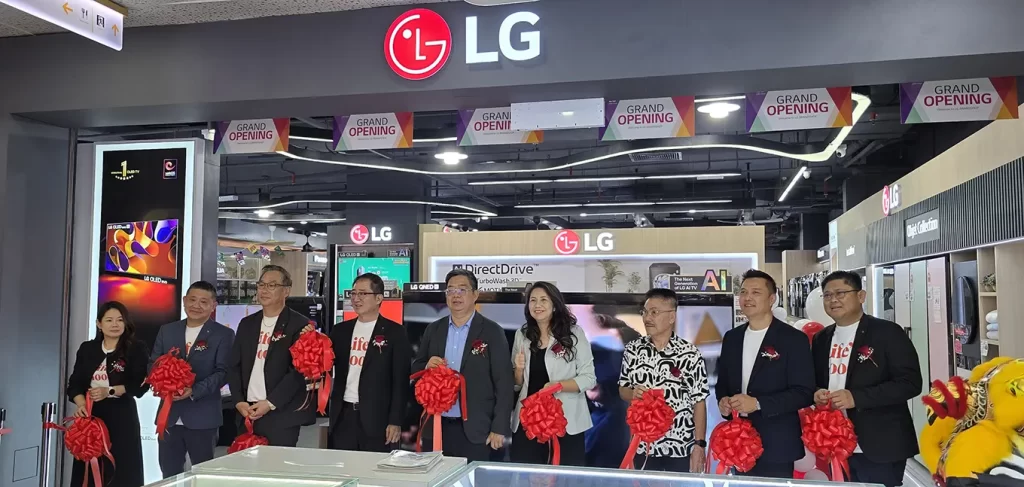Review – Samsung Galaxy S23 Ultra
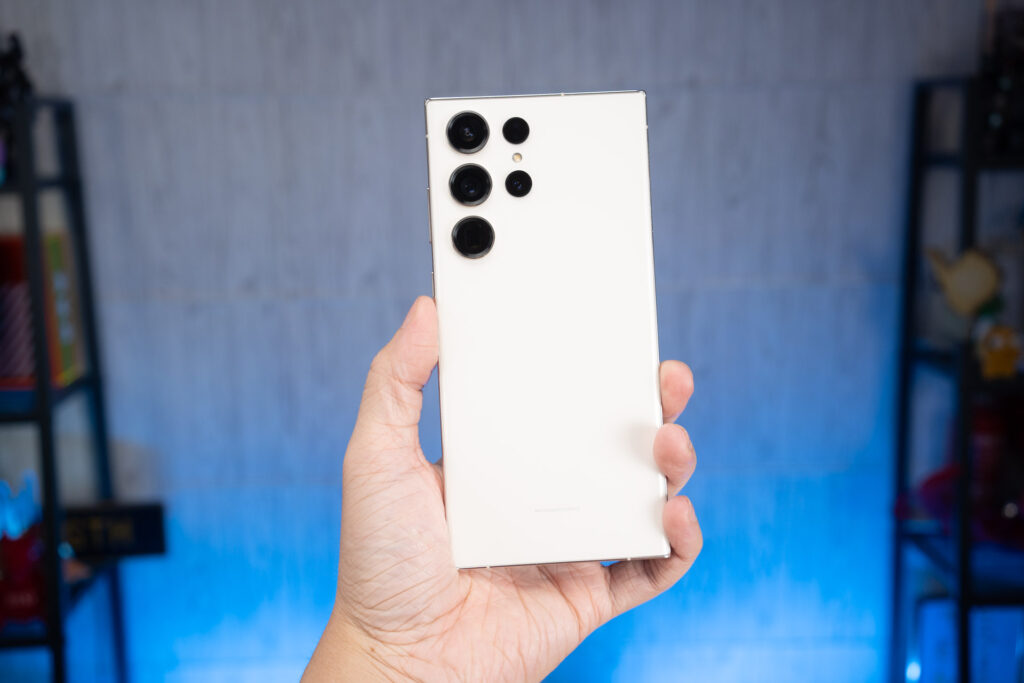
The Samsung Galaxy S23 Ultra is the latest flagship smartphone from Samsung. The device boasts an impressive array of features, including a large 6.8-inch Dynamic AMOLED 2X display, a brand new 200MP primary camera and a powerful Qualcomm Snapdragon 8 Gen2 SoC. Here’s my review after using the phone as my daily driver for the past two weeks.
Design
The design is probably the most argued factor among the fans and haters. It basically looks identical to the outgoing Samsung Galaxy S22 Ultra. I can’t blame them because most consumers judge a gadget’s “freshness” based on its design. I think we should outgrow this mindset as the smartphone industry is pretty much mature at this point. While Samsung is still working to fully develop new form factors such as the Samsung Galaxy Z Fold and Flip series, the Galaxy S series is following the tried and tested methodologies to offer the most reliable smartphone experience.
Other than that, the phone itself still sports the modern look with its sleek glass front and back sandwiching a metal frame. There are a total of four colour options available, Phantom Black, Green, Lavender and Cream. An additional four colours – Graphite, Skyblue, Lime and Red are available exclusively at Samsung.com.
Handling-wise, I must say it depends on your preference for a large phone. A majority of the customers prefer a bigger phone so that they can play games and stream videos. Power users usually don’t mind the size as they need the phone to get things done, especially those who take notes, take photographs and edit documents on the go. Personally, I can still accept a large phone as long as the chassis design is ergonomic, I just wish the four corners are rounded just like the S23 and S23 Plus.
Display
The display on the Samsung Galaxy S23 Ultra is a 6.8-inch Dynamic AMOLED 2X panel with a resolution of 3088 x 1440 (horizontally). The 120Hz refresh rate provides a smooth and fluid user experience. The display can produce up to 1750 nits of brightness at peak with a sustained high-brightness mode at 1200 nits. That is pretty substantial especially when you’re trying to use the phone under bright conditions.
The screen is protected by Corning Gorilla Glass Victus 2 which is, you guessed it, more durable than the Victus+ and first-generation Victus. If you’re interested to learn how the glass has improved over the years, here’s a brief writeup that looked into the differences between the Gorilla Glass generations.
In-person, the display looks amazing with its vibrant colour reproduction and sharp details. It is perfect for multimedia consumption and photo/video taking. Let’s just hope Samsung would take on the same design route as the standard S23 models with a flat display instead of a curved one.
S Pen
Of course, we shall not forget about the key feature of the Galaxy S Ultra series – the S Pen.
It is safely stored in the pen cartridge and charges wirelessly. Why charge the pen you ask? Well, simply because the S Pen has a low-power Bluetooth connection with the phone to allow a variety of functions other than just writing.
You can use the S Pen as a shutter remote presentation cue. The tip is precise and simply put, this is one of the best stylus you can get in the market right now.
Camera
The key highlight of the Samsung Galaxy S23 Ultra is, once again, the camera array. It is no surprise that the camera is the primary focus for this year’s flagship smartphone since the majority of customers are never satisfied with their current smartphone camera. The device has four rear-facing cameras, including the flagship 200MP wide-angle camera, a 12MP ultra-wide camera and two 10MP telephoto cameras at 3X and 10X respectively.
The front-facing camera is a 12MP camera with dual-pixel PDAF. Smart move, Samsung. Some might complain about the decrease in the megapixel count for the front-facing camera from 40MP to 12MP. Personally, I don’t think 40MP actually matters anything even if it is using the pixel-binning technique to combine four pixels into one to create a 10MP photo. The end result would still look subpar as the sensor itself is small, to begin with. Having a 12MP native sensor and pairing it with a better autofocus system, Dual Pixel PDAF in this case is way better.
When shooting in 200MP mode, the image has minimal to zero post processing, likely to avoid overloading the ISP.
The main benefit of shooting 200MP mode is definitely the freedom to crop.
Don’t forget that the file size is above 40MB each if you shoot 200MP.
Personally, I think the 200MP mode is quite gimmicky by itself, however, it truly shines when utilized as digital zoom. Here’s a set of images capture with the following cameras:
- 0.6x ultra-wide camera
- 1x standard primary camera
- 3x telephoto camera
- 10x periscope camera
- 100x digital zoom
As shown on this image, the text are looking sharp and clear, however, it doesn’t reflect on the graphics below the signboard. In other words, it is highly likely that Samsung is using some sort of post processing to “fix” the 100x digital zoom images. Text can be easily recognized and “fixed” by the software but not the same case for graphics. Clever implementation and can be useful in some circumstances.
The rest of the photo gallery for your viewing pleasure.
Performance
Samsung has completely abandoned the Exynos chip for this generation, opting for the Qualcomm Snapdragon 8 Gen 2 for all the Galaxy S23 Ultra sold worldwide. Fortunately, TSMC took up the fabrication job and the end result is absolutely mind-blowing – world-class performance with outstanding power efficiency. Our local variants will be getting the standard 12GB RAM and three choices of storage – 256GB, 512GB and 1TB. Moving away from the 128GB option is the right choice, especially since we’re talking about their top-of-the-line phone with amazing photography & multimedia capabilities.
For everyday usage, the highly optimised Samsung One UI 5.1 with Android 13 is simply unbeatable. While I used to like vanilla Android, as years goes by, I find myself settling down with alternative Android skins particularly One UI as it has all the features I would use, especially Samsung Pay. While some other countries had the privilege of using Google Pay since it was launched many years ago. No one else cared except Samsung Malaysia who went to the banks and form a long-term partnership that lasts until today.
Shifting our focus to gaming, Samsung has been working on this shortcoming for years. After allowing users to customise the gameplay performance through the Game Launcher plugin, we’re happy to learn how Samsung has moved forward from its conservative default settings. Games are used to render at a lower resolution, fearing that it would tear apart the frame rate, temperature and battery life, when in fact the phone’s hardware is fully capable of handling. Today, when we launched Genshin Impact, the game no longer showed us a noticeable pixelated screen.
Battery Life
And that brings us to the battery life. Based on my semi-heavy usage pattern, I manage to extract about two days’ worth of battery life out of the 5000mAh battery. This is all thanks to the highly efficient Qualcomm Snapdragon 8 Gen 2. It sips energy when you’re just casually mingling on social media and only pushes hard when you’re gaming or using the camera. While Samsung didn’t boast crazy charging numbers such as 100W as they were rather conservative when it involves battery. Keep in mind that most of the other marketed charging wattage is just the maximum rate, not the sustained rate. The Samsung Galaxy S23 Ultra’s maximum charging wattage is 45W and it is done with battery protection in mind, keeping the charging temperature in the 40c range.
Conclusion
Overall, the Samsung Galaxy S23 Ultra is an impressive smartphone with a wide range of features and capabilities. The camera system is particularly noteworthy, with the 200MP sensor binning, it can take impressive highly detailed photographs even if you’re not shooting at its native resolution. Honestly, I don’t think you will ever need to do it unless you need it for cropping or large prints.
While the overall design might look similar to the outgoing S22 Ultra, it is a completely different kind of beast under the hood. The Snapdragon 8 Gen 2, enlarged cooling surface area and bypass charging feature allow the phone to perform way better than its predecessor. It is great if you’re a power user or looking for a do-it-all gaming phone.
As for the starting price of RM5,699 in Malaysia, it is RM200 more expensive than the S22 Ultra, however, you’re getting 256GB storage instead of 128GB. Personally, I think it is fair considering how the currency is not in favour of MYR. If you’re looking for a high-end smartphone with top-of-the-line features and performance, the Samsung Galaxy S23 Ultra is definitely worth considering.

